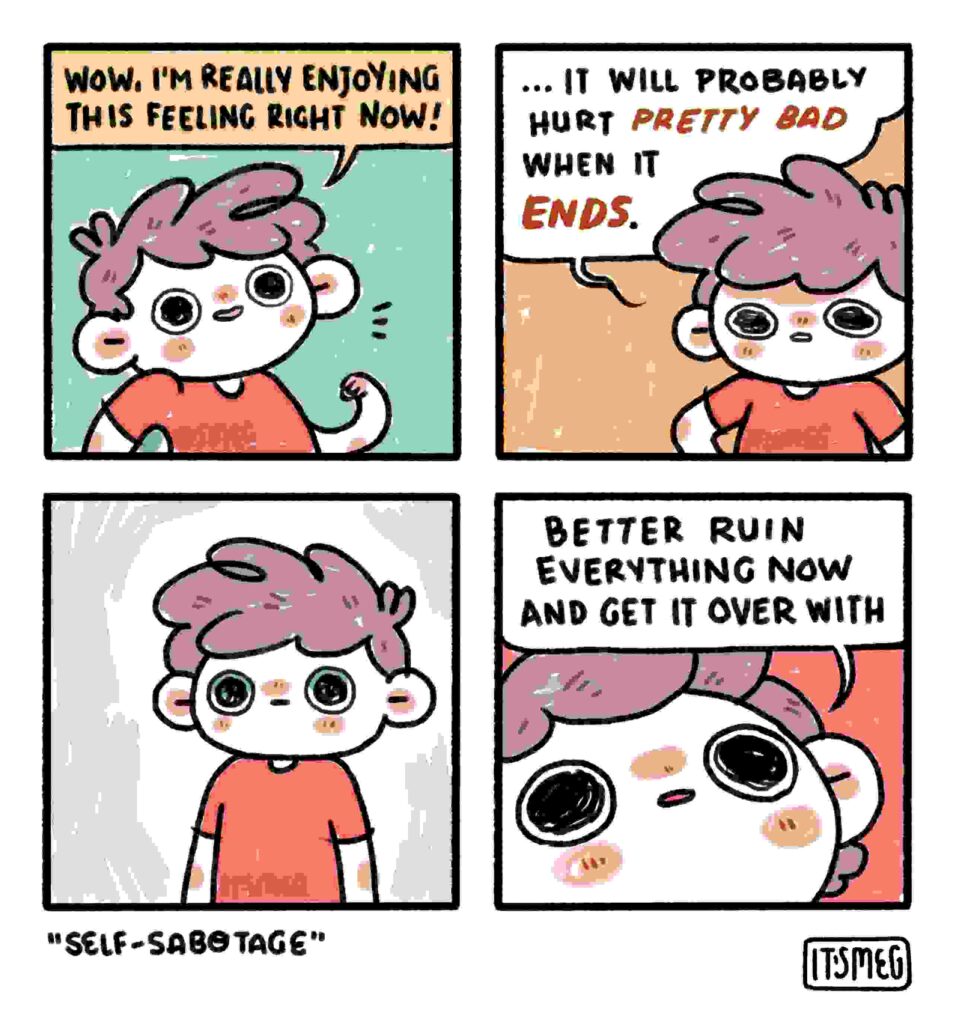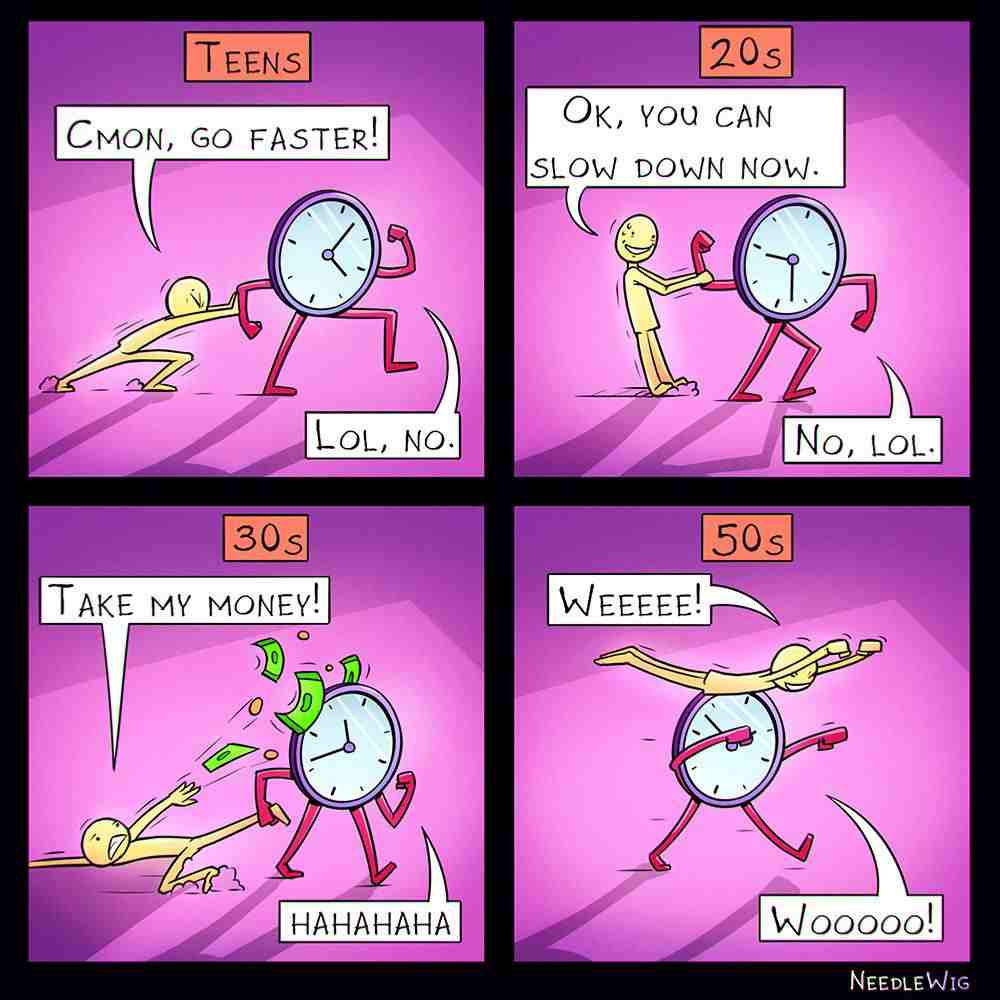For most of my life, I’ve been angry. Because I knew I was capable of doing more, but I couldn’t prove it. To myself more than to others.
What was slowing my personal growth? Among other things, the baggage of the past. It contains a few items, the dominant ones of which are memories. I’ve lived for over 40 years, so I had a lot of memories, most of which were negative.
These memories, in turn, created negative emotions, desires, and beliefs: escapism, self-berating, overwhelm. They also made me paint a bleak picture of the future. For instance, if I was struggling to do something, my mind would serve me with similar memories. I would put them together, add my negative emotions, and create a despondent image of the future.
Then there’s comparison: I compared every moment to the past or my idea of the future, effectively ruining all three. (If you think you’ve self-sabotaged, I am THE KING!)

But the more I spoke to people, the more I realized that this is surprisingly common.
Memories add emotions, imagination, and comparison to the baggage of the past. The heavier this bag is, the slower we move on the journey of life… until we stop in our tracks. The load is too heavy to let us move any further. Then we get frustrated because we can’t do anything… and this vicious cycle repeats itself.
How to Pursue Personal Growth?
What if you could leave that bag where it is right now? If you could just pick out the tools that will help you in the future and fill them in a small handbag? Would that make you feel lighter, give you energy and the confidence to move ahead on the path of personal growth?
I’m not going to tell you what tools to take—those vary by person. I’ll just share, from experience, a few thoughts on how you can put the bag down and choose the right tools from it.
#1. Do the task for its own sake.
Not for you likes or dislikes, nor for what it could get you—money, applause, love, designation. The task is in front of you for a reason; let the chance to do it alone be the reward you crave.
Such an attitude will let you give your best. You will do it so well that there won’t be any residue of regret or anxiety. No memories, imagination, or comparison—only contentment.
That’s when you will, as per Indic sages, die every night and been reborn every morning, because every experience will be fresh for you.
#2. Slow down.
Juggle many balls and you are bound to drop them all. Then you will sit on the floor, head in your hands, depressed because of the mess that you made.

Instead, be like oyster in the ocean. When the star Svāti rises while its raining, the oyster reaches the surface to capture a drop of rainwater. Then it sinks to the ocean bed and stays there until the raindrop turns into a pearl.
Pick one thing, then cut out distractions and stick with it until you achieve mastery. Then, not just the outcome, even you will turn into a pearl.
Who cares how long it takes! Mastery is a lifelong process with no goal, right?
#3. Train your mind.
Focus doesn’t come naturally, especially in a distracted era. For that, we must train the mind, like we train for a healthy body.
This can be done through dhāranā, a Sanskrit word for the practice of focusing with one-pointedness of the mind on a particular state or topic. This could include a mantra, our breath, a body part, or something we want to observe.
With practice, you will rein in the monkey mind and senses (indriya nigraha). You will focus on one thing for longer and observe things better, just like the bottom of a pond becomes visible when the water is still.
Dhāranā is a limb of ashtānga yoga whose practice will fuel personal growth. You can read more about it here.
Summary
Krishnamurti says that a drawer is useful when it’s empty. The same holds true for the mind. Keep a few things, add and remove what you deem fit, so long as you keep the mind empty.
Also, don’t worry that if you need to check the baggage of the past, you will need to go all the way back to where you left it. Just summon it (a summoning charm, maybe?), and it will arrive. Baggage is incredibly light when summoned, but super heavy when carried.
For instance, if you are going through a rough phase and you want memories of when someone was mean to you, or when you didn’t get what you wanted, or when you were angry, your baggage will appear in an instant. But carry that baggage… and you know what happens.
Here’s the thing, though. When you can practice the above steps of working for work’s sake, of slowing down, and training your mind to focus, you will be able to examine your memories through the present and understand them. You will let go of the past but remember the lessons today so that you can have a better future.
Keep moving. That is what gives life meaning.
